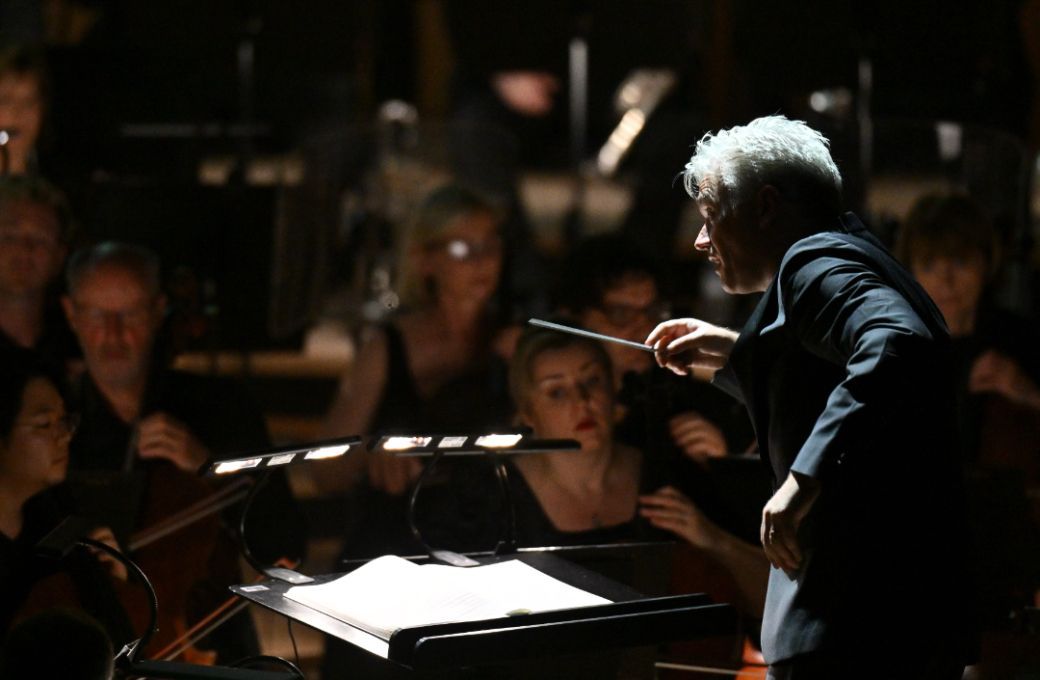As Music Director of the London Philharmonic, Edward Gardner has not hitherto demonstrated any strong Mahlerian affinity, except notably in the case of Das Lied von der Erde. He reliably brings careful attention to the unity of text and music, and he gets the best out of choirs, and he did so again in the Eighth Symphony. Indeed the choral contribution was outstanding throughout, with the London Philharmonic Choir and London Symphony Chorus spilling down the flanks of the stalls, and imparting a thrilling surround-sound effect to the double-choir polyphony of Part 1, capped by descant contributions from the Tiffin Boys’ Choir. Gardner’s long experience in guiding and shaping choral forces, and no doubt the coaching of their chorus masters, told to memorable effect: diction, dynamic, attack and articulation never mannered but always illuminating.

Despite a couple of late substitutions, the performance fielded a strong cast of soloists, distinguished above all by Andrew Staples in the almost unsingable role of Doctor Marianus. With plenty of experience in the equally exigent tenor part of Das Lied von der Erde, for which Marianus may have served in Mahler’s mind as a dry run, Staples brought assured heroism to lines sustained above the stave for bar after bar – but also bullish gentility when needed, especially when taking to his knees to address his prayer to the Virgin, evoking the third song in the later cycle when the singer takes tea in a pavilion, all out of size like Gulliver in the land of Lilliput.
Underplaying potentially high contrasts in the episodes of Mahler’s hymn setting with a Wagnerian melos brought its own dividends in drawing the symphony’s two parts together. Gardner phrased the second part’s long introduction as a set of verses and refrains, eliciting some striking pure tone from the LPO cellos, and suggesting that the Good Friday meadow of Wagner’s Parsifal was just over yonder.
It would have been possible thereafter to play up the ariettas and ensembles in Part 2 as a compendium of Mahler’s experience as the greatest opera conductor of his day. Instead, Gardner took the long view: sometimes very long indeed, drawing out to heavenly lengths the deep purple radiance of Goethe’s and Mahler’s women as they swim into view, swelling harmonium to the fore. If the final moments of the Chorus Mysticus still wanted something for transcendental ecstasy, yielding in this regard to the LPO’s previous performance under Vladimir Jurowski, that was not the fault of the chorus, more a combination of Gardner’s concern for line and coherence, and elements in the semi-staged presentation which cut against the grain of the Eighth’s overwhelmingly affirmative nature.
With the LPO about to take its annual leave from London for the summer, and decamp to Glyndebourne for Parsifal inter alia, the Eighth served as both fitting climax and upbeat for the festival season. No doubt Mahler’s setting of the final scene from Goethe’s Faust in Part 2 of the symphony does invite the kind of semi-staging attempted here. Not least for reasons of space on a packed stage, the impact of theatrical intervention was largely limited to video designs from Tal Rosner: naturalistic and uncontroversial in their way, though the screens failed to serve their single most pressing function of projecting the text. Instead of which, we had to make do with executive summaries, and if the purpose of the staging was to open out meanings in the symphony and treat it as more than a super-sized oratorio, surely audiences old and new to the piece would have been better served by the actual words of Bishop Hrabanus Maurus and Goethe.
Perhaps with this in mind, the director Tom Morris was called upon to deliver a kind of pre-performance apologia for the staging; and the heart sinks in such situations, when a staging cannot be trusted to speak for itself. His appeal to contemporary relevance for the symphony leaned on authentically Mahlerian doubts and shadows – which Mahler himself had comprehensively banished (for once) in writing the Eighth. Indeed the hubris of the piece still takes one’s breath away: a self-designated climax to his career as both composer and conductor, uniting both sacred and secular worlds, and taking the universally acknowledged high point of German literature for his text. The wonder is that he gets away with it, and takes us with him – as, for all its passing drawbacks, this performance did.


